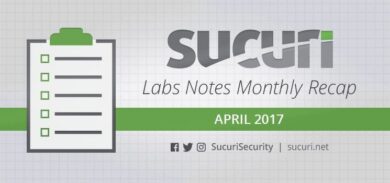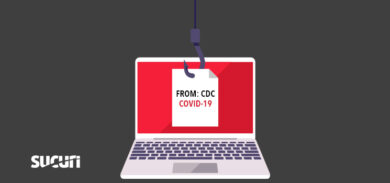You would never leave the front door to your house wide open when you’re not home would you? Doing so would allow criminals to seize the opportunity of stealing your valuables. That’s the same way you can look at website hacking. Leaving your website unprotected is like establishing an open-door policy with hackers, giving them access to view sensitive information and modify your website content.
Hackers view your site as a possible tool for their end purpose. Their motives can be summed up in two words – money and exposure.
If you run an e-commerce site, attackers obviously look for bank data, credit card and personal information. Some attackers may redirect users visiting your site in order to generate traffic and ranking for others.
Why Hackers Like Small Sites
Contrary to what many believe, it’s not about the size of your website, your traffic, or even what you are promoting – it’s about abusing your website and server resources.
Sometimes, hackers want to spread a message. This is called hacktivism.
Most often, once an attacker gets access to your site, they make money using:
- Phishing pages.
- Malvertising (ads).
- SEO spam.
- Drive-by-downloads.
- Credit card skimmers (if it’s an e-commerce site).
These are only the most common attacks that we see. Hackers can also install scripts that use victim server resources to send email spam or perform DDoS attacks against other sites. These campaigns can all make money for the attacker.
How Hacks Happen
Attackers are always evolving in their techniques and strategies, constantly scanning the web to find the most vulnerable sites. The easiest ones to crack turn into a victim of endless exploitation.
In short, there are two main reasons why it’s so easy to attack small websites: software vulnerability and access control.
- When it comes to software vulnerabilities, we’re talking about old, buggy website software that has security updates available. If a website doesn’t have all the security patches it needs – from Apache to CMS plugins – then it can easily be discovered by hacker tools that scan the internet. From there, they automate the attack cycle too.
- For access control, this involves issues with bad passwords and login practices. It’s easy for hackers to “guess” weak passwords by using brute-force tools and programs. There are many things one can do to restrict user access, primarily implement good passwords and a second factor of authentication (2FA or MFA).
What is SEO Spam?
Of all the incidents we see, SEO spam is one of the most common affecting small sites.
First, it’s important to know how SEO works. Ultimately, Google wants to see relevant keywords on your site, and on the sites that link to you. The more links you have, the better. If a hacker can gain access to thousands of sites, they can create a private network that they use for link building schemes.
Once attackers have a list of sites to exploit, they automate the attack phase. This malicious software infects the CMS and server, where it modifies the website content or injects thousands of new spam pages.
These modified or injected pages contain spam links and keywords that help the attacker fool Google. This comes along with anything from changing existing links and post content, to creating one or multiple new sites on the server, or creating thousands of new pages and posts.
Keep in mind, often times these spammers are going to great lengths to keep their malicious injection undetectable to visitors and the website owner, yet visible to the good web crawlers, like Googlebot, so they can reap the benefits from SEO with higher rankings.
What is Pharma Spam?
Ever had someone say that your business comes up as a pharmacy solution, a casino, or any other business not related to your website on the search results?
This is known as Search Engine Poisoning (SEP) and it’s a shortcut road that sends many links from victim websites to another site which helps it to gain ranking along the way.
When a victim checks the search results where their listing should show up, they would see one unrelated to their website. Something like this, for example, that promotes Viagra and Cialis pharmaceuticals:

How SEO Spam Impacts Your Website
Imagine someone hangs a sign in front of your business, making it so that your business looks like a pharmacy to everyone, including your loyal bakery customers.
That is the impact of this type of attack; your traffic, visitors, ranking and everything you have built is now just there to serve a bad actor. You lose your reputation and credibility all in an instant.
We’ve also written in the past about all the ways a hack can impact your website and visitors.
How To Avoid Getting Hacked
At a minimum, here are just a few tips you can follow to help keep your website safe:
- Update, update, update! When a security flaw is discovered in your website software (plugins, themes, etc) updating to the patched version makes sure your software is no longer vulnerable.
- Practice strong password creation and storage by using a password generator and password manager for all of your online accounts.
- Monitor your site for any suspicious behavior and indicators of compromise. You can use our free SiteCheck scanner to detect hacks, though we recommend a complete integrity monitoring solution. If you are on WordPress, try the Sucuri WP Plugin and follow our new WordPress security guide.
- Look for a security solution that fits your needs, ideally with firewall protection, monitoring, and incident response. Sucuri is an all-in-one solution with a team of professionals working for you 24/7.
- Backup everything! This is the least you can do to save your information; it’s often free! Make sure to follow the best practices for website backups.
Close the door to attacker opportunities by always being informed and prepared. Look for the right solutions and dim the lights on being hacked by properly securing your site.










